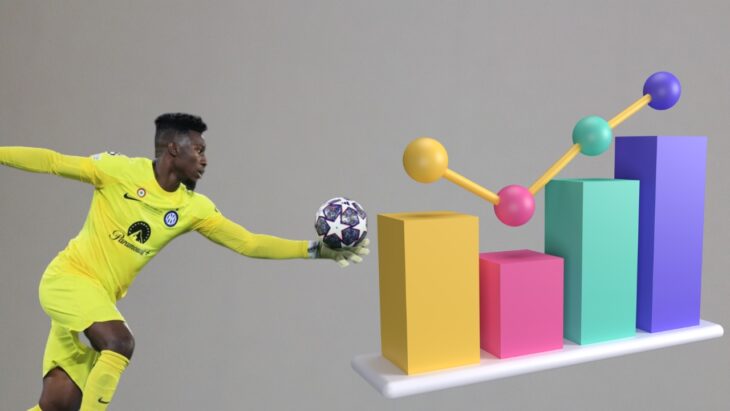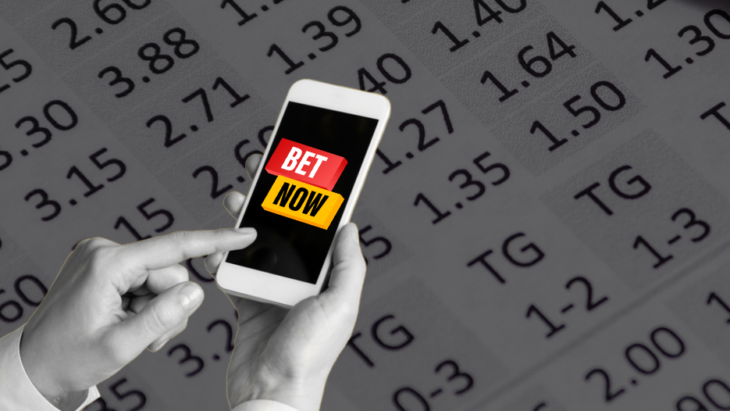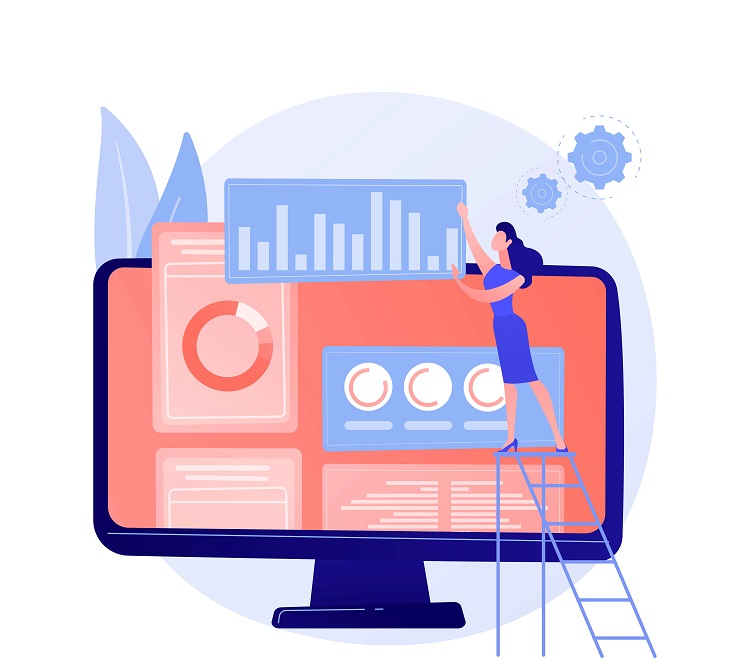Bookmakers use odds to attract customers, balance their books, and make profits. They set their odds based on their own estimations of the probabilities of the outcomes, as well as the market conditions and customer behavior.
If you are interested in placing bets on sports or any other event, keep in mind that proper research can be crucial. The main reason for that is that not all bookies will always provide the same odds for some events. If you are interested in the best betting sites available in the UK, check out gg.co.uk.
Also, we will provide more details about the whole process of determining the odds, and what methods bookies are using to get more precise and accurate values while keeping them attractive at the same time.
Table of Contents
ToggleHow Do Bookies Calculate Odds?

One of the main tasks of the bookmaking industry is to calculate the odds for different events and outcomes. The odds reflect the chances of an event happening and the potential payout of a bet. The odds are based on two main components: probability and margin.
Probability is the measure of how likely an event is to occur, expressed as a number between 0 and 1, or as a percentage. The probability of an event can be estimated by using various sources of information, such as:
- Statistical data: This includes historical records, current standings, head-to-head results, and other relevant metrics that can indicate the performance and strength of the teams or players involved in the event.
- Form: This refers to the recent results and trends of the teams or players, such as their winning or losing streaks, injuries, suspensions, and morale.
- History: This considers the past outcomes and patterns of the event, such as the home advantage, the rivalry, the weather, and the referee.
- Public opinion: This reflects the preferences and expectations of the bettors and the general public, which can influence the demand and supply of the bets.
Most Common Methods

- Analytical agencies: These are specialized companies that provide data and insights to bookmakers, such as sports statistics, ratings, predictions, and trends. They use advanced software and algorithms to collect and process large amounts of data from various sources, such as historical records, current events, and social media.
- Software: These are applications and programs that help the bookmakers to calculate and update the odds, as well as to manage their operations and customers. They use mathematical models and formulas to estimate the probabilities and margins of the events, and to adjust them according to the market conditions and customer behavior.
- Algorithms: This represents sets of rules and instructions that automate the oddsmaking process and optimize the outcomes. They use artificial intelligence and machine learning to analyze the data and generate the odds, as well as to learn from the feedback and improve their performance.
- Experts: Human professionals who have extensive knowledge and experience in the sports and betting industry. They use their intuition and judgment to evaluate the data and provide their opinions and recommendations to the bookmakers.
What Are the Main Factors?
- Supply and demand: This refers to the amount and availability of the bets offered and requested. The bookies adjust their odds to balance the supply and demand, and to attract or deter the customers.
- Competition: It is related to the number and quality of the bookmakers and the bettors in the market. The bookmakers adjust their odds to compete with other bookmakers and to gain or retain the customers.
- Risk management: Strategies and techniques used to minimize their losses and maximize their profits. They adjust the odds to reduce their exposure and liability, and to hedge their bets.
Learn About Different Types of Odds
Bookmakers present odds in various formats, including fractional, decimal, and moneyline. Understanding these formats can help bettors make informed decisions. Here is a brief overview of each type:
- Fractional Odds: Common in the UK, fractional odds show the profit relative to the stake. For example, 5/1 means you win £5 for every £1 bet.
- Decimal Odds: Popular in Europe, Australia, and Canada, decimal odds include the stake in the total payout. For example, 6.00 means you receive £6 for every £1 bet.
- Moneyline Odds: Common in the US, moneyline odds can be positive or negative. Positive moneyline odds (e.g., +500) show how much you win on a £100 bet, while negative odds (e.g., -200) show how much you need to bet to win £100.
Impact of New Technologies

The traditional way of oddsmaking relies mainly on human expertise and intuition. The bookmakers use their own knowledge and experience to estimate the probabilities and margins of the events and to adjust them manually according to the market conditions and customer behavior.
However, there are some downsides that are making this option outdated and less efficient.
- It is time-consuming and labor-intensive due to the need to collect and process the data and the odds by themselves, and to monitor and update them constantly.
- It is prone to human errors and biases, as the bookmakers may make mistakes or overlook some factors that can affect the probabilities and margins of the events, or they may be influenced by their emotions or preferences.
That is the main reason why most companies use various software and algorithms to collect and analyze the data and to generate and update the odds, as well as to manage their operations and customers. The main benefits are:
- Speed and efficiency: The software and algorithms can process large amounts of data and provide the odds in real-time, and to adjust them automatically according to the market conditions and customer behavior.
- Accuracy and Objectivity: The use of mathematical models and formulas can estimate the probabilities and margins of the events and eliminate human errors.
Technology has enabled bookmakers to offer more betting options, faster updates, and better customer service to their customers. Some of the examples are:
- More betting options: Technology has allowed bookmakers to expand their coverage and variety of the events and the outcomes that they offer to their customers, such as live and in-play betting, virtual and e-sports betting, and exotic and novelty betting.
- Faster updates: Accurate odds and the results of the events and outcomes in real time. Data is adjusted instantly.
- Better customer service: Related to improved communication and interaction with the customers, such as providing online and mobile platforms, offering personalized and customized odds and services, and giving feedback and support.
How Often Do Mistakes Happen?
Mistakes are relatively rare given the robust systems in place, but they do happen. The frequency of errors varies by bookmaker and the complexity of the event. High-profile events with significant betting volume are less likely to have mistakes due to closer scrutiny and better resources. However, smaller or less popular events may see more frequent errors.
Common Mistakes and Their Causes
- Data Inaccuracies: Inaccurate or outdated data can lead to incorrect odds. This can happen if the data sources are unreliable or if there is a delay in updating information.
- Unexpected Events: Sudden changes, such as player injuries, weather conditions, or other unforeseen events, can affect the outcome of an event and the accuracy of the odds.
- Human Oversight: Although algorithms handle most calculations, human error can still occur during data entry, odds adjustment, or interpretation of information.
Impact on Bettors
For bettors, mistakes by bookmakers can present opportunities and risks. Occasionally, bettors might find favorable odds that reflect an error rather than the true probability of an event. While this can lead to profitable bets, it’s crucial to remember that bookmakers can void bets if they identify clear mistakes.
Bookmakers Response to Mistakes
Bookmakers often have policies in place to handle errors. They may adjust the odds, void bets, or offer refunds to maintain fairness. Additionally, they continuously refine their algorithms and data sources to minimize the likelihood of mistakes in the future.
FAQs
1. How do bookmakers ensure they remain profitable despite offering different odds?
Bookmakers remain profitable by setting a margin on their odds. This margin ensures that the odds are slightly less than the true probability, guaranteeing a profit over the long term. They also adjust odds based on the volume of bets placed on different outcomes, balancing their books to minimize potential losses.
2. What are the risks of relying solely on bookmaker odds for betting decisions?
Relying solely on bookmaker odds can be risky because odds are influenced by market conditions and customer behavior, not just the true probabilities of outcomes. Bettors who do not conduct their own research might overlook important factors or fall prey to market biases.
3. Can technological advancements completely eliminate human error in oddsmaking?
While technological advancements can significantly reduce human error in oddsmaking, they cannot completely eliminate it. Data inaccuracies, unexpected events, and the need for human oversight in interpreting and adjusting algorithms mean that some level of human error is inevitable.
4. How do bookmakers handle significant changes in event conditions, such as a star player getting injured?
Bookmakers constantly monitor event conditions and adjust their odds in real-time to reflect significant changes. If a star player gets injured, bookmakers will quickly alter the odds to reflect the new probabilities, ensuring they remain accurate and fair.
5. Are there regulations in place to protect bettors from bookmaker errors?
Yes, there are regulations in place in many jurisdictions to protect bettors from bookmaker errors. These regulations require bookmakers to maintain fairness and transparency, including handling errors appropriately, such as voiding bets or issuing refunds if necessary. Regulatory bodies also ensure that bookmakers use reliable data and maintain ethical standards.
The Bottom Line
The main reason why it is important to understand the whole process is that it will help you decide when choosing a combination. For example, there might be a clear reason why the main favorite suddenly has a much higher odds of winning. It may be related to an injury of key players or some other factors.


